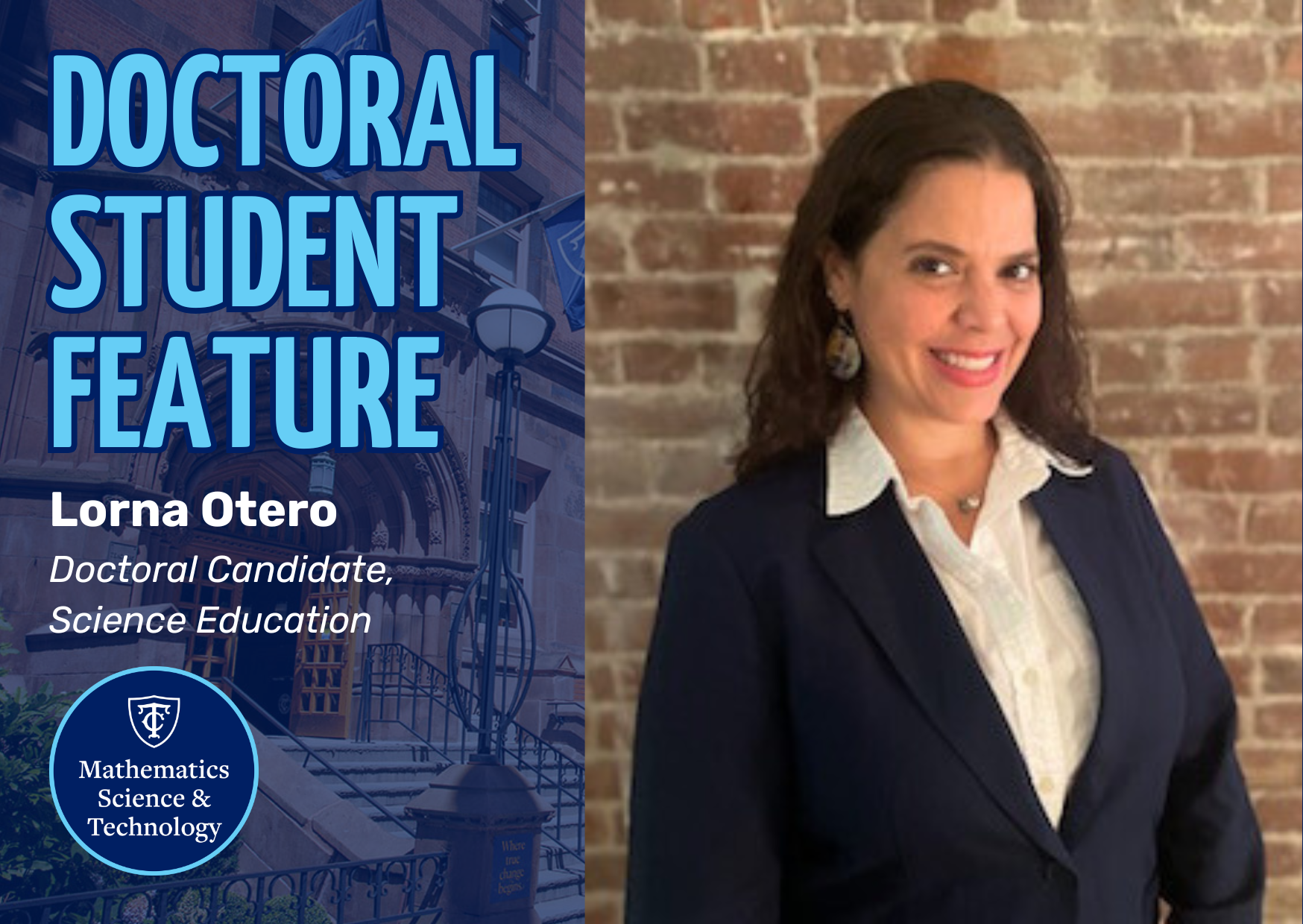When Hurricane Maria hit Puerto Rico in 2017, it didn’t just destroy homes and infrastructure, it upended the future Lorna Otero was building for herself as a science teacher. After the school she helped build alongside her colleagues amidst the public Montessori movement was left in ruins, she made the decision to move to New York City. Here, she quickly returned to teaching while exploring what her next steps in higher education might be. A few months into her time in NYC, a chance visit to the Columbia campus led Lorna to the front doors of Teachers College (TC). She immediately felt drawn but wasn’t sure she would belong as a first-generation student. Still, she chose to apply and was accepted into the Science Education program as a master’s student after her second attempt, beginning the program in 2019.
Lorna’s transition into TC brought new challenges. She remembers feeling intimidated by classmates whose academic journeys looked very different from her own. Then, in 2020, the onset of the COVID-19 pandemic during her first year added another layer of isolation. Yet, she succeeded as a master’s student, finishing her M.A. then her Ed.M. in Science Education. After a bit of encouragement from professors in her program, Lorna began pursuing her Ph.D. in Science Education in 2022.
Lorna’s doctoral research studies how Black and Latinx students experience science learning in predominantly white environments. As a teacher in an international school in New York City, she was noticing patterns that reminded her of her own early feelings of not belonging. “I saw Black and Brown students behaving as if they didn’t belong, and I wanted to understand why,” she explains. Her research uses observations, student journals, and interviews to explore how representation and curriculum shape identity and engagement in science learning.
Community and mentorship have been essential to Lorna’s growth at TC. Throughout her doctoral journey, she has found encouragement from her advisor, Dr. Felicia Mensah, received valuable mentorship from professors such as Dr. Jessica Riccio, and inspiration from Dr. Yolanda Sealy-Ruiz. Teaching courses such as “Oceanography” and “Environmental Education” has also strengthened her confidence and affirmed her commitment to teaching as a transformative act. Each experience has contributed to a clearer sense of purpose for Lorna, who is creating a future where the emotional and cultural realities of students are valued just as much as their academic success.
For other first-generation students considering a doctoral program, Lorna offers both honesty and encouragement: “Even if you’re scared, do it scared.” She also reminds students that belonging isn’t something you arrive at, it’s something you build with the people around you. She urges students to seek and give support wherever possible, as both help to develop a sense of belonging and resilience. Lorna’s journey to and through TC is a testament to her commitment to community, persistence, and courage. All of us in the MST Department look forward to watching her become Dr. Otero!
